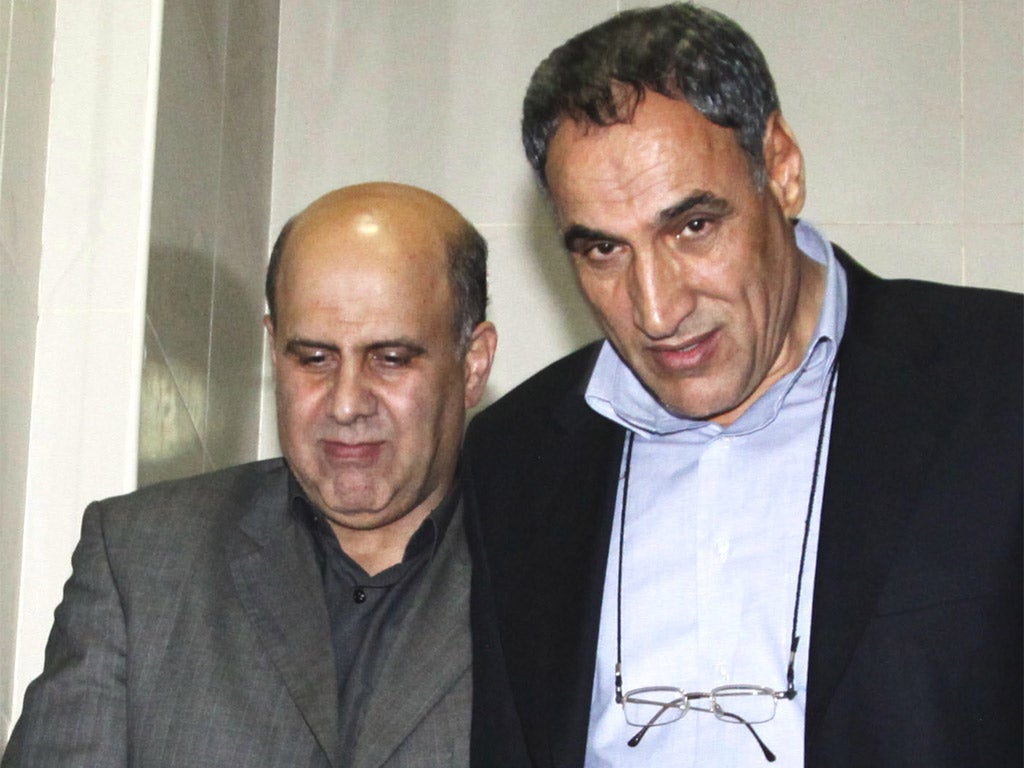Iranian agents arrested in Kenya were 'looking for foreign targets'
Israel and Iran's Cold War spills over into East Africa

The cold war between Israel and Iran appears to have spilled into East Africa after two alleged Iranian agents arrested in Kenya on suspicion of plotting bomb attacks were claimed to have been targeting foreign interests, including the British High Commission.
Prior to their arrest on 19 June, the suspects had toured sites including the Israeli embassy in Nairobi and a golf course in the coastal city of Mombasa, as well as the British High Commission, according to Kenyan police sources.
Believed to be members of Iran's secretive al-Quds corps, Ahmad Abolfathi Mohammad and Sayed Mansour Mousavi subsequently led authorities to a cache of high explosives.
The two men have been charged with illegal possession of 15 kilograms of RDX, a chemical previously used in the 2006 Mumbai train bombings and 2010 Moscow metro attacks. They are due back in court in the Kenyan capital Nairobi later this month.
The plot, if confirmed, would be "par for the course (in the) killing games" that the two countries have been engaged in across the wider region, said Anthony Cordesman, a Middle East expert at the Centre for Strategic and International Studies.
The al-Quds corps is the part of Iran's Revolutionary Guard which has been tasked with carrying out attacks against Israel in reprisal for what Tehran claims is an assassination campaign against its nuclear scientists. The unit has "no clean, clear set of instructions", said Mr Cordesman, and its operatives often launch freelance operations without orders from Tehran.
Security sources in Nairobi linked the Iranians' presence to operations by Somali militants al-Shabaab, who are blamed for a campaign of grenade attacks following Kenya's military incursion into neighbouring Somalia last October. Al-Shabaab has threatened to hit major targets in Kenya including Nairobi "skyscrapers".
Investigators believe that the Iranian-imported chemicals could have been broken up into smaller batches and then used in a series of attacks that would not necessarily have been blamed on Iran.
Complicating Nairobi's response is the fact that the arrests come as Kenya is finalising a controversial purchase of crude oil from Iran, a move that risks violating international sanctions in response to allegations that Iran is seeking to develop nuclear weapons. Nairobi has signed a memorandum of understanding to purchase 4m tonnes of crude oil from Iran despite US moves to strengthen sanctions and the EU's approval of an embargo on Iranian oil.
Israel's Prime Minister, Benjamin Netanyahu, said Iran was "the greatest exporter of terror" after the arrests.
Israel and Iran have been accused of playing proxy war in the two Sudans after Tehran sought closer links with northern Sudan's regime, while Israel has begun arms sales to South Sudan.
Subscribe to Independent Premium to bookmark this article
Want to bookmark your favourite articles and stories to read or reference later? Start your Independent Premium subscription today.

Join our commenting forum
Join thought-provoking conversations, follow other Independent readers and see their replies